Sweden Considers Restricting Dual Nationals In Sensitive jobs

Sweden's security service has drafted a protective act to intensify recruitment regulations in sensitive jobs for dual nationals or children of immigrants.

Sweden's security service has drafted a protective act to intensify recruitment regulations in sensitive jobs for dual nationals or children of immigrants.
The measure comes after two brothers of Iranian origin in Sweden were indicted on spying for Russia last year.
The act applies to both public and private organizations engaged in "security-sensitive activities" that are important to Sweden's national security and infrastructure. The act includes almost 100,000 Iranians living in the country as well.
Any company handling "security-sensitive information," will need to conduct a personnel security assessment before hiring new staff.
According to the Swedish security service, authoritarian governments can force the families of people who want to be employed in sensitive positions to spy.
The act has been criticized and Ardalan Shekarabi, an Iranian-born member of the Swedish Parliament.
In November 2022, Sweden charged two Iranian-born brothers, Peyman and Payam Kia, with spying for Russia and its military intelligence for about a decade.
Iranian-Swedish relations have been soured in recent years after Ahmadreza Jalali, an Iranian-Swedish doctor and researcher visiting Iran was deatined in 2016 on charges of espionage and after a sham trial sentenced to death.
Stockholm also issued a life sentence for Hamid Nouri, the former deputy prosecutor of Gohardasht prison in Sweden, on his role in the mass killing of political prisoners in Iran in 1980s.
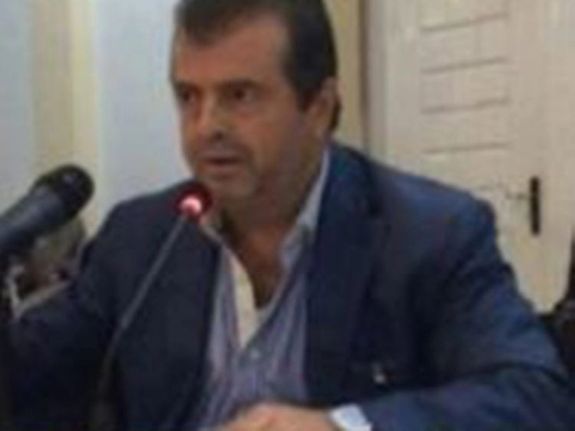
Romanian authorities say a Lebanese-Belgian citizen, who is considered a key financier of the Iranian-backed militant group Hezbollah was arrested on Friday in Bucharest.
Romanian law enforcement authorities took Mohammad Ibrahim Bazzi into custody after he arrived in Bucharest on Friday, the Associated Press reported.
Bazzi, 58, who was labeled a “global terrorist” by the United States in 2018 when $10 million was offered for information about his whereabouts, has funneled millions of dollars to Lebanon’s Hezbollah over the years, officials said.
Breon Peace, United States Attorney for the Eastern District of New York on Friday charged Mohammad Ibrahim Bazzi and Talal Chahine, both Lebanese citizens, with conspiracy “to conduct and cause American persons to conduct unlawful transactions and money laundering conspiracy.”
“As alleged, Mohammad Bazzi thought that he could secretly move hundreds of thousands of dollars from the United States to Lebanon without detection by law enforcement. Today’s arrest proves that Bazzi was wrong,” stated Peace, adding that “Our office is committed to ensuring that sanctions imposed by the US government are respected and that terrorism financiers are starved of funds.”
“The defendants in this case attempted to provide continued financial assistance to Hizballah, a foreign terrorist organization responsible for death and destruction,” stated DEA Acting Special Agent-in-Charge Daniel J. Kafafian.
“The men and women of DEA are committed to working with our law enforcement and foreign counterparts to disrupt and dismantle the operations of these organizations and those who choose to support them financially,” he added.
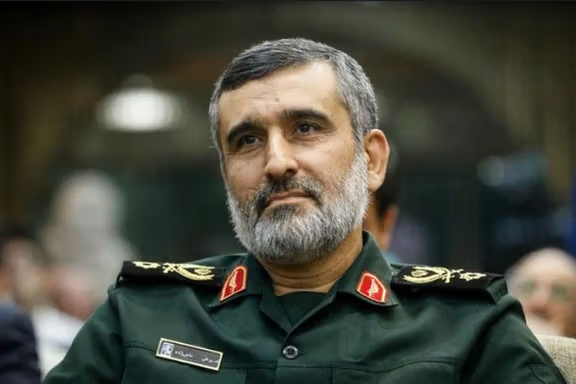
Iran has developed a cruise missile with a range of 1,650 km a top IRGC commander claimed Friday, as he threatened to kill former US President Donald Trump.
Separately, Amirali Hajizadeh, the head of the Revolutionary Guards aerospace force, also spoke of Iran's often repeated threat to avenge the US killing of Qassem Soleimani, Tehran’s top military and intelligence operator in the Middle East, saying "We are looking to kill (former US President Donald) Trump."
The IRGC’s provocative statements come at a time when Western powers are imposing new sanctions on the Islamic Republic and Iran’s economy is in a downward spiral.
On Saturday, the currency, rial, hit another all-time low of 565,000 against the US dollar, an almost 100-percent depreciation since September when nuclear talks with the United States, United Kingdom, France and Germany reached a deadlock.
"Our cruise missile with a range of 1,650 km has been added to the missile arsenal of the Islamic Republic of Iran," Hajizadeh, told state TV.
The television broadcast what it said was the first footage showing the new Paveh cruise missile.
The four Western powers have adopted a tougher stance against Tehran since Russia started to use Iranian-supplied kamikaze drones against Ukraine in early October. At the same time, the Islamic Republic’s bloody crackdown on popular protests and the killing of more than 500 civilians raised outrage in Europe and North America.
Hajizadeh said Iran did not intend to kill "poor soldiers" when it launched a ballistic missile attack on US-led forces in Iraq days after Iranian military commander Soleimani was killed in a US drone strike on January 3, 2020 in Baghdad.
"God willing, we are looking to kill Trump. (Former Secretary of State Mike) Pompeo ... and military commanders who issued the order (to kill Soleimani) should be killed," Hajizadeh said in the television interview.
Iranian leaders have often vowed to avenge Soleimani in strong terms.
Iran has expanded its missile program, particularly its ballistic missiles, in defiance of opposition from the United States and expressions of concern by European and regional countries. Tehran says the program is purely defensive and of a deterrent nature.
At the same time, the spokesman of Iran’s foreign ministry, Nasser Kanaani told Russia’s Sputnik website that Tehran is ready to resume the nuclear talks. He also claimed that whatever weapons it supplied Russia were before the war in Ukraine – a claim previously made by the foreign minister.
Iran has said it had supplied Moscow with drones before the war in Ukraine. Russia has used the drones to target power stations and civilian infrastructure. But multiple reports point to continues supply of drones, and Western powers have voiced concern of Iran supplying missiles to Russia, which has used most of its precision, long-range arsenal.
In November, the Pentagon said the United States was skeptical of reports quoting Hajizadeh as saying Iran had developed a hypersonic ballistic missile.
Iranian officials often make exaggerated claims about their military and intelligence prowess that cannot be verified independently.
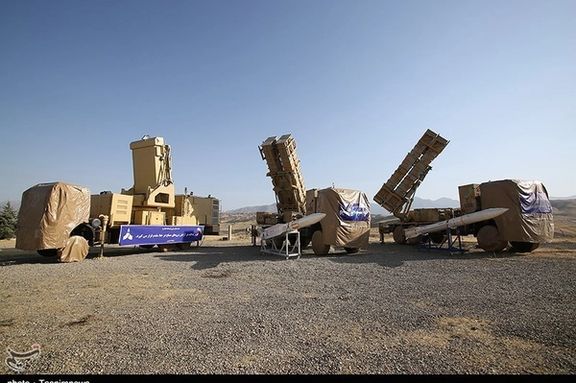
The Islamic Republic is likely to sell surface-to-air missiles to Syria, state television said on Friday, to help reinforce the air defenses of Tehran's close ally in the face of frequent Israeli air strikes.
In a report on Thursday night, IRIB News said Iran and Syria have reached an agreement for the delivery of equipment related to air defenses and electronic warfare as "Syria needs to rebuild its air defense network and requires precision bombs for its fighter planes."
Having felt threatened by increased Israel attacks on facilities needed by Iran to deliver arms and equipment to its proxy forces, "Syria needs to reconstruct the network of its air defenses and also required precision bombs for its fighter jets," the report said. "It is very likely that we will witness the supply of Iran's radars and defense missiles, such as the Khordad 15 missile system, to reinforce Syria's air defenses." The Islamic Republic claims Unveiled the missile system is capable of detecting fighter jets and combat drones from 150 kilometers away and tracking them within a range of 120 kilometers.
Amid new sanctions by Western countries on Iran’s Revolutionary Guard for human rights violations and other mischiefs, the multi-role organization is ramping up Syria’s air defense system, despite rampant poverty in Iran.
Israel has also in recent months intensified strikes on Syrian airports and air bases to disrupt Iran's increasing use of aerial supply lines to deliver arms to allies in Syria and Lebanon, including Lebanon's Hezbollah.
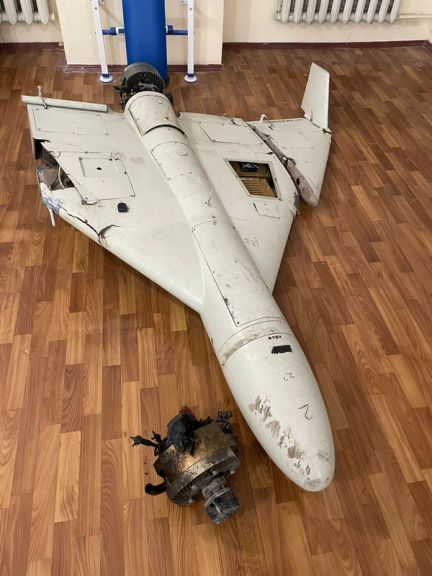
The UK has sanctioned 92 individuals and entities over the Russian invasion of Ukraine, including export bans on items Kiev has found Moscow is using on the battlefield.
The new sanctions, which were announced to mark the one-year anniversary of the aggression in Ukraine, designated 80 people, including senior executives of Russian state-owned nuclear power company Rosatom as well as five senior Iranian executives of Qods Aviation Industry, a subsidiary company of Iran Aviation Industries Organization, which manufactures drones used in Ukraine.
Foreign Secretary James Cleverly announced on Friday the new package of internationally coordinated sanctions and trade measures, including import bans on 140 goods such as iron and steel products processed in third countries.
The statement by the Foreign Secretary said that the sanctions on Iranian officials demonstrates their commitment to continue to pressure third countries supplying Russia’s military.
Managing Director of Qods Aviation Industry Company Ghassem Damavandian, and some board members of the company, namely Vali Arlanizadeh, Reza Khaki, Majid-Reza Niyazi-Angili, and Hamidreza Sharifi-Tehrani, are the Iranians included in the new batch of sanctions.
Earlier in February, Britain imposed sanctions on three Iranian judges, three members of Iran's Islamic Revolutionary Guard Corps and two regional governors. Those added to the sanctions list are subject to an asset freeze and travel ban. The list of sanctioned individuals includes IRGC members, such as the commander of provinces in which security forces have severely injured and killed children.
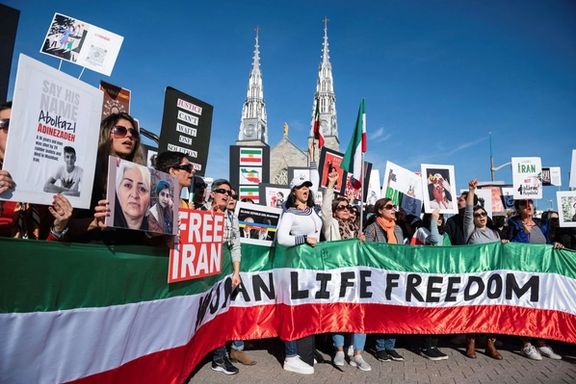
The Canadian government has announced it will facilitate the process for Iranian temporary residents in Canada looking to extend their stay.
In a statement on Thursday, the Canadian government cited the Islamic Republic's crackdown on the current wave of protests as the reason behind the new measures. “Canada is committed to protecting Iranians already in Canada, and to helping Iranian families stay together. In light of the gross and systematic human rights violations being committed by the Iranian regime during its brutal crackdown on protesters, some may wish to prolong their stay in Canada rather than return home at this time,” read the statement.
"Effective March 1, 2023, these measures will make it easier for Iranians who wish to extend their temporary status in Canada and to move between temporary streams, allowing Iranians to continue studying, working or visiting family by applying for a new permit from inside Canada," it added.
The Canadian government said an open work permit pathway will be made available for Iranians already in Canada, adding that applications from Iranians in Canada will also be processed on a priority basis.
Canada also said it was waiving certain processing fees for Iranians who wish to extend their stay in Canada, and will also waive passport and permanent resident travel document fees for citizens and permanent residents of Canada in Iran who wish to leave.
"Canada will not stand idly by in the face of these aggressions as the Iranian regime continues its ongoing human rights violations," Canadian Immigration Minister Sean Fraser said.